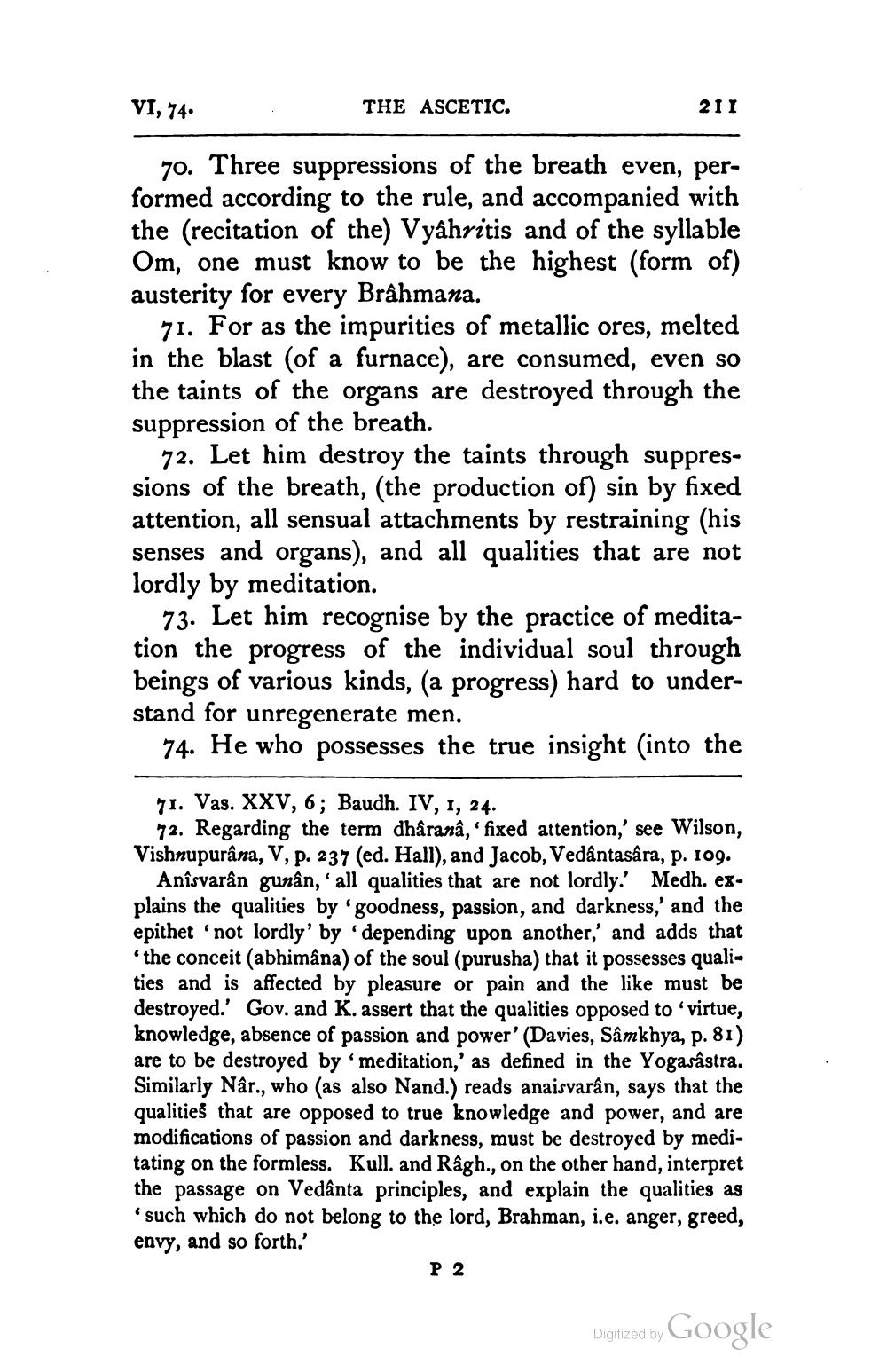________________
VI, 74.
THE ASCETIC.
211
70. Three suppressions of the breath even, performed according to the rule, and accompanied with the (recitation of the) Vyâhritis and of the syllable Om, one must know to be the highest (form of) austerity for every Brahmana.
71. For as the impurities of metallic ores, melted in the blast (of a furnace), are consumed, even so the taints of the organs are destroyed through the suppression of the breath.
72. Let him destroy the taints through suppressions of the breath, (the production of) sin by fixed attention, all sensual attachments by restraining (his senses and organs), and all qualities that are not lordly by meditation.
73. Let him recognise by the practice of meditation the progress of the individual soul through beings of various kinds, (a progress) hard to understand for unregenerate men.
74. He who possesses the true insight into the
71. Vas. XXV, 6; Baudh. IV, 1, 24.
72. Regarding the term dhâranâ, fixed attention,' see Wilson, Vishnupurâna, V, p. 237 (ed. Hall), and Jacob, Vedantasära, p. 109.
Anîsvaran gunan, 'all qualities that are not lordly.' Medh. explains the qualities by 'goodness, passion, and darkness,' and the epithet 'not lordly' by 'depending upon another,' and adds that 'the conceit (abhimâna) of the soul (purusha) that it possesses qualities and is affected by pleasure or pain and the like must be destroyed.' Gov. and K. assert that the qualities opposed to 'virtue, knowledge, absence of passion and power' (Davies, Sâmkhya, p. 81) are to be destroyed by meditation, as defined in the Yogasastra. Similarly Nár., who (as also Nand.) reads anaisvarân, says that the qualities that are opposed to true knowledge and power, and are modifications of passion and darkness, must be destroyed by meditating on the formless. Kull. and Ragh., on the other hand, interpret the passage on Vedanta principles, and explain the qualities as
such which do not belong to the lord, Brahman, i.e. anger, greed, envy, and so forth.'
P 2
Digitized by Google




